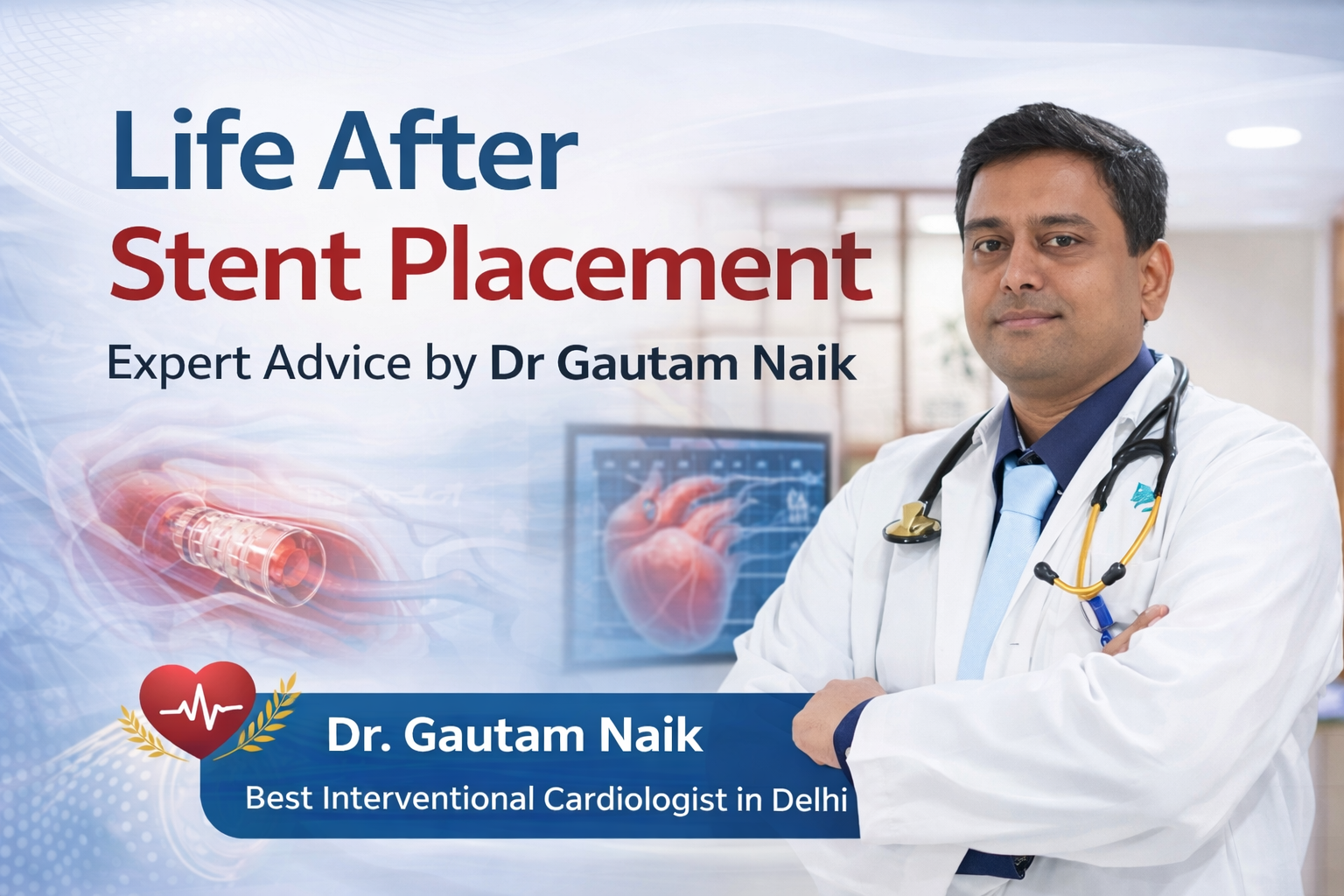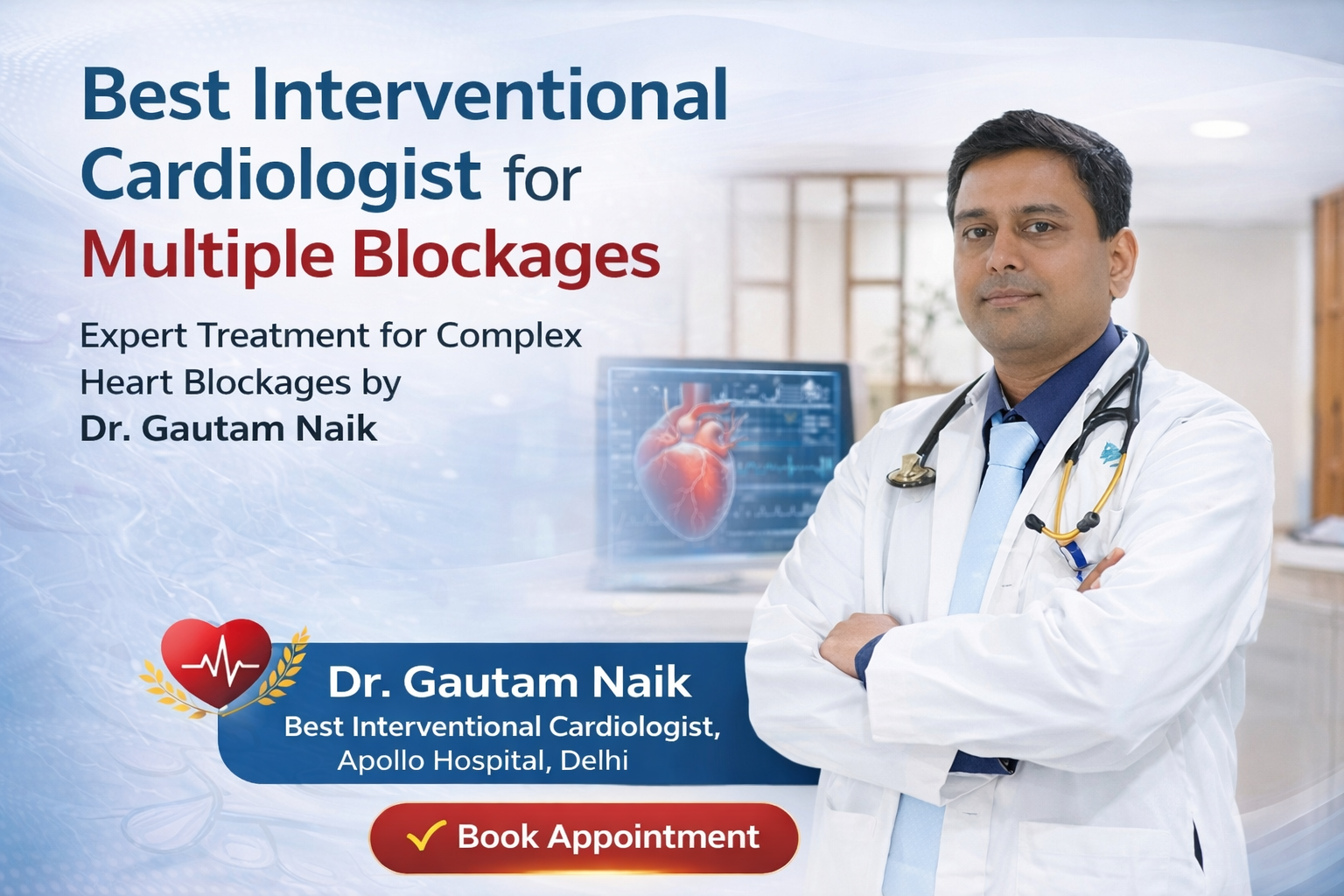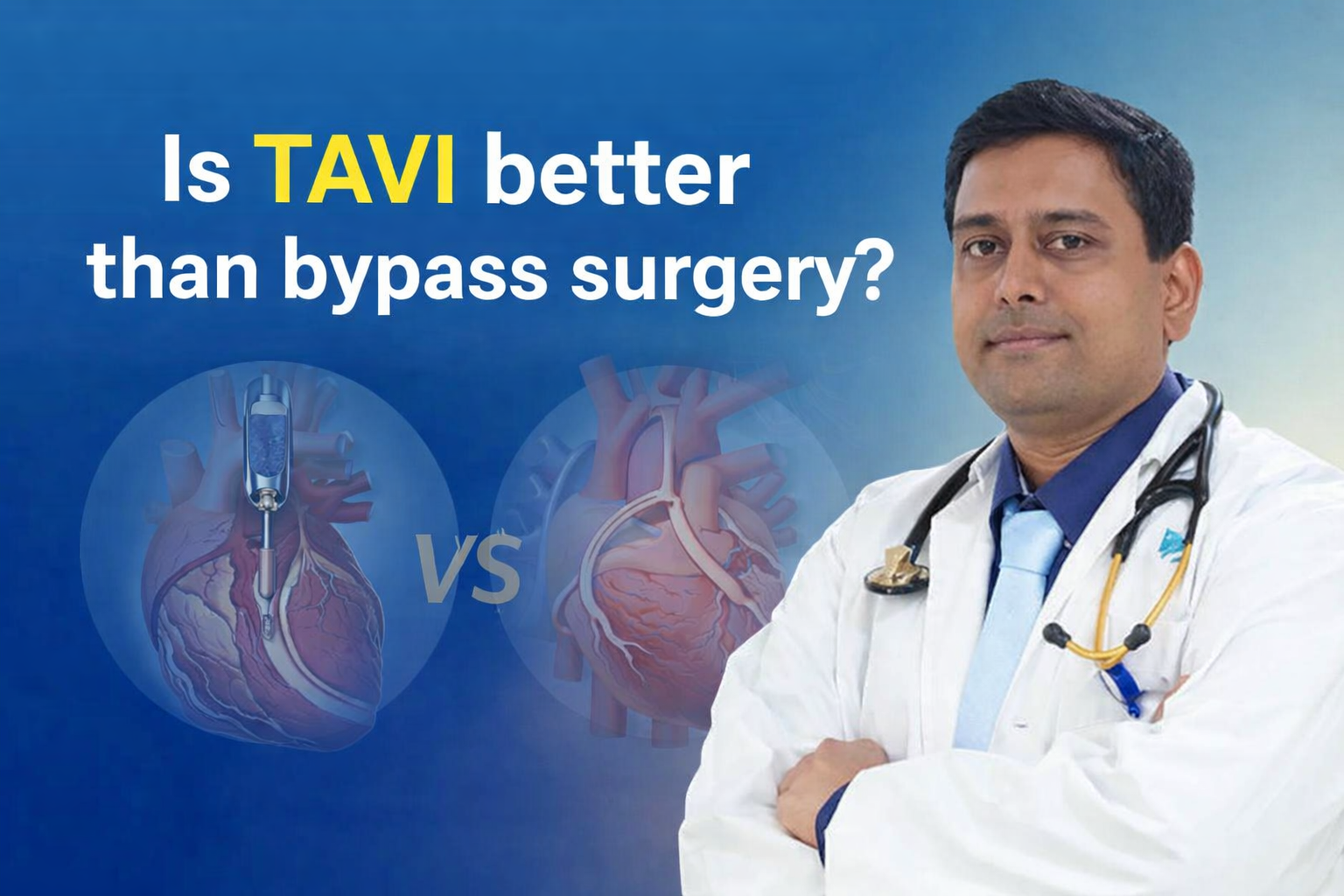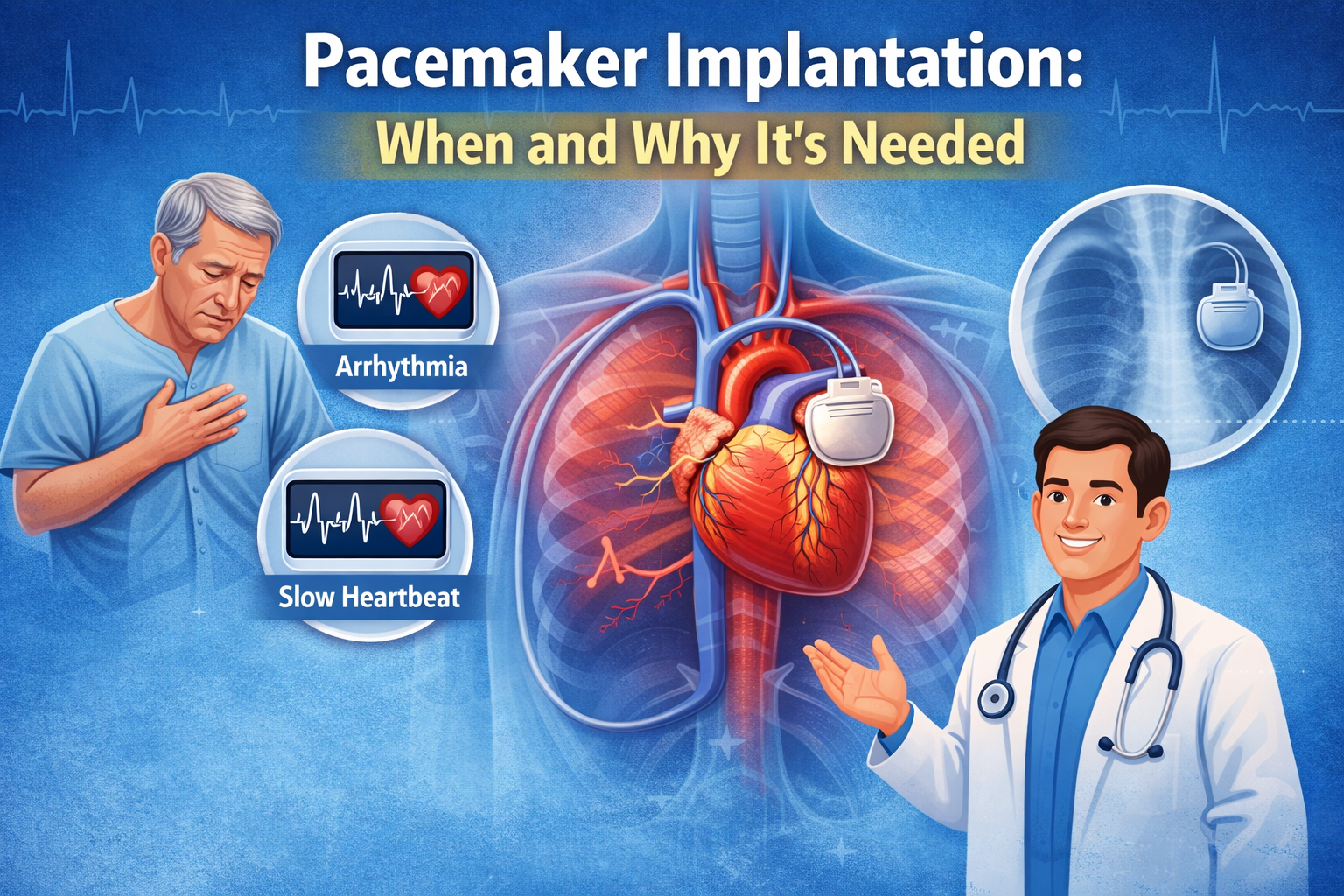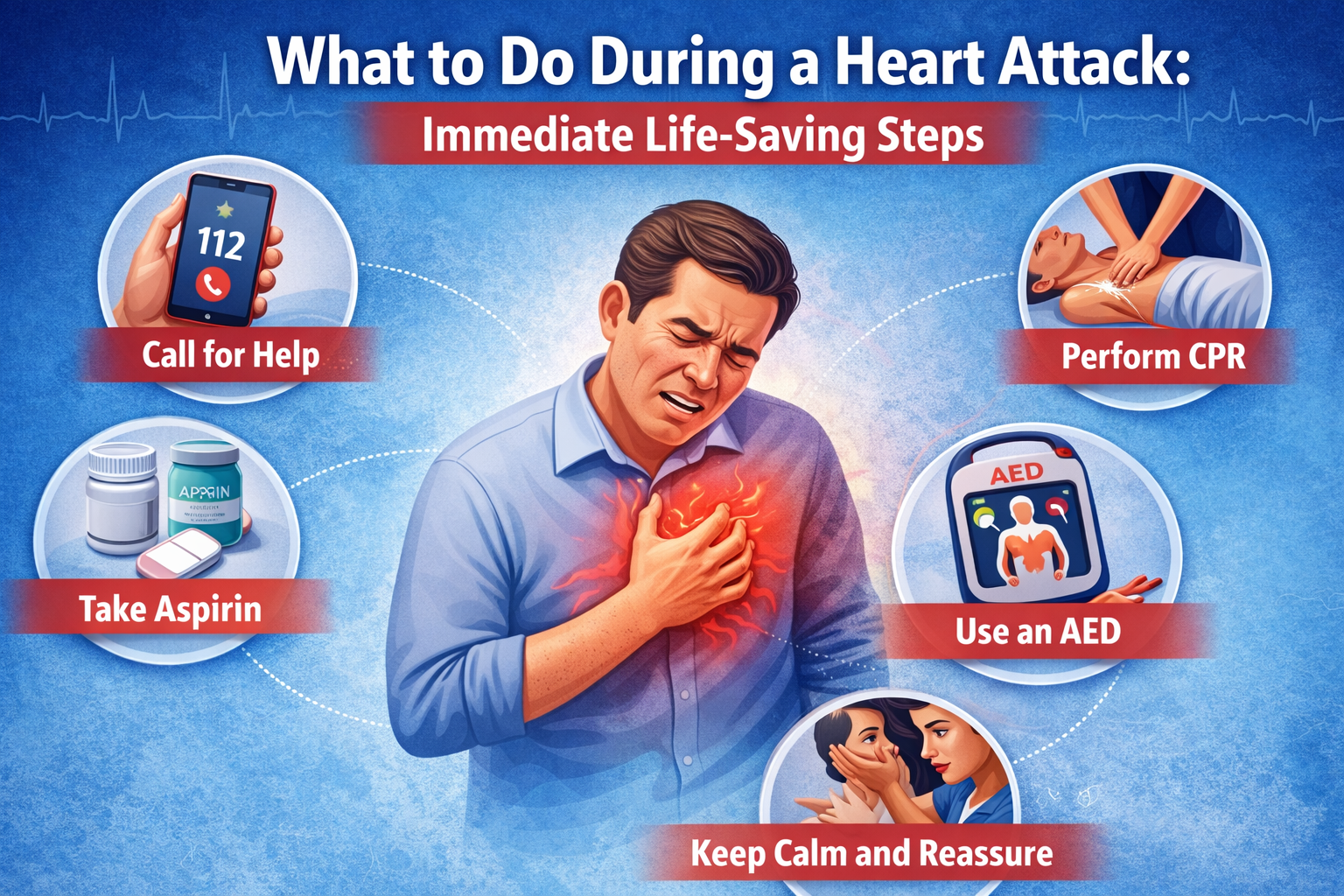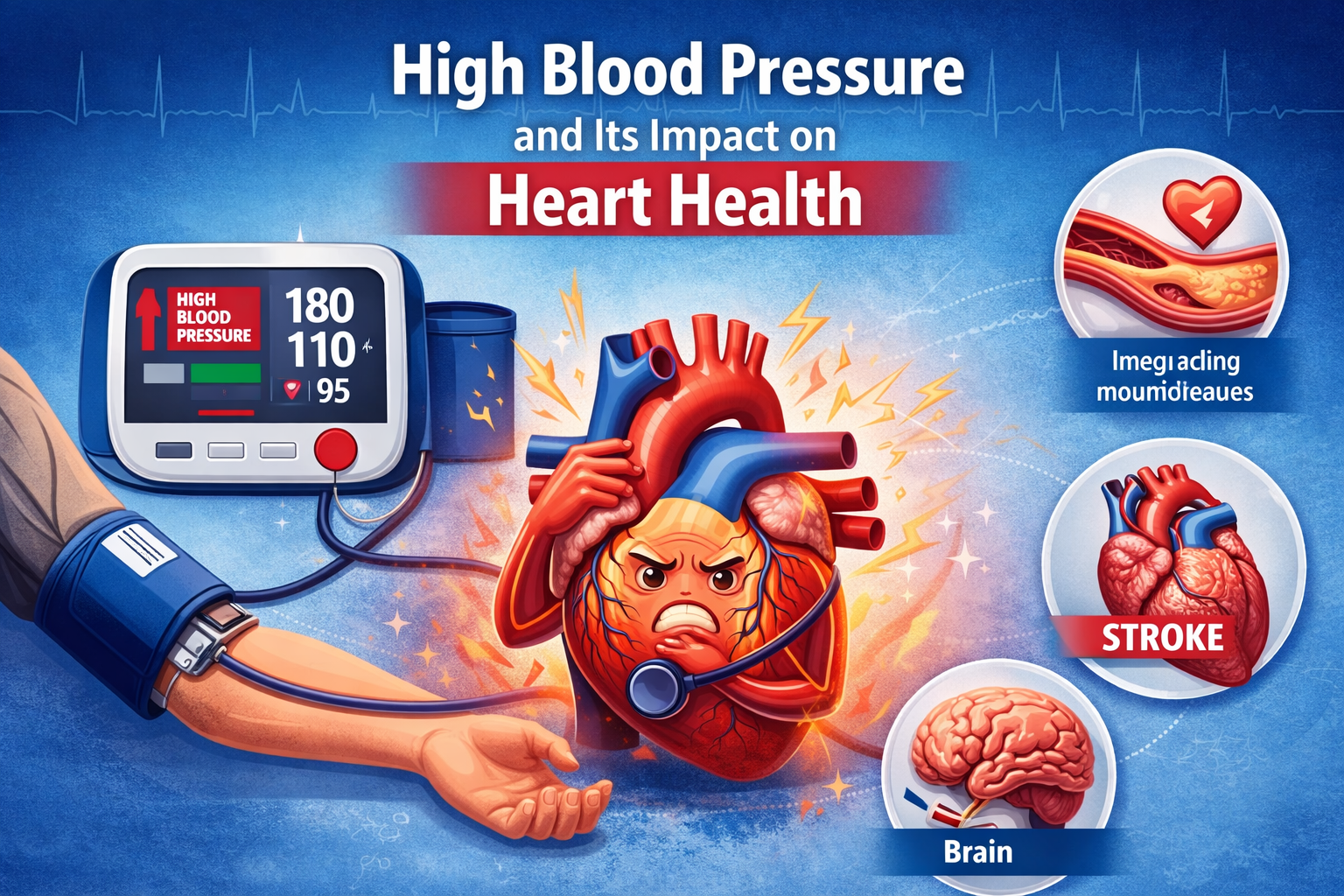Early Signs of Heart Attack
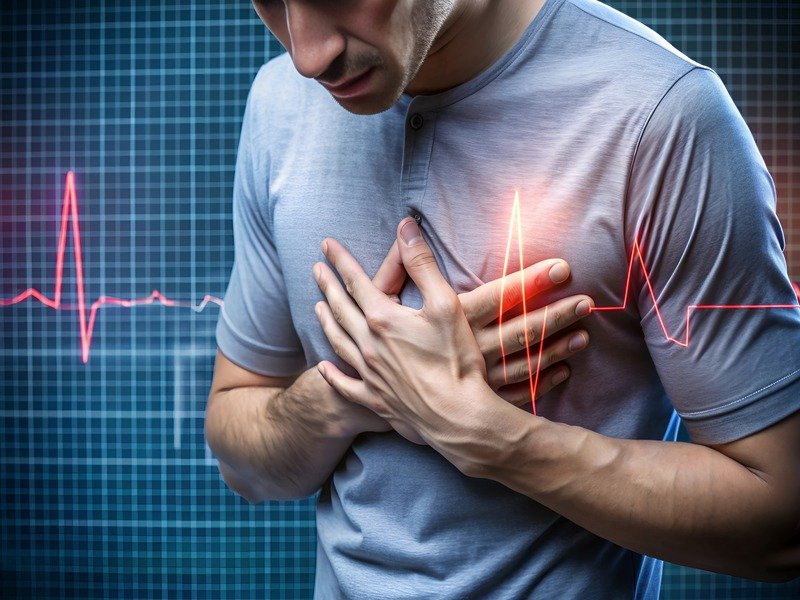
Heart attacks are a leading cause of death worldwide, yet many people don’t recognize the early warning signs until it’s too late. Swift action can dramatically improve survival chances and minimize long-term heart damage. This blog covers expert insights Dr. Gautam Naik, Best Cardiologist in Delhi/NCR, on the most common early signs of a heart attack and provides a step-by-step guide on what to do in case of an emergency.
What is a Heart Attack?
A heart attack, or myocardial infarction, occurs when blood flow to the heart muscle is blocked, usually by a clot or plaque buildup in the coronary arteries. Without sufficient oxygen-rich blood, the heart muscle begins to deteriorate, and early intervention is critical to minimize damage.
Early Signs of a Heart Attack
Although heart attacks often strike suddenly, there are subtle signs that may begin hours, days, or even weeks before the actual event. Here’s what to look for:
- Chest Discomfort (Angina)
- What it feels like: Pressure, squeezing, fullness, or pain in the center or left side of the chest.
- When it happens: It may come and go or persist for more than a few minutes.
- Note: Not all heart attacks present with intense chest pain, especially in women and older adults.
- Pain or Discomfort in Other Parts of the Body
- Radiating pain: Can spread to the shoulders, arms (usually the left), jaw, neck, or back.
- Misinterpreted as: Indigestion, pulled muscles, or dental issues, leading to delays in seeking treatment.
- Shortness of Breath
- When it occurs: Can happen with or without chest pain.
- Possible signs: Breathlessness during mild activities or even at rest.
- Link to heart attack: Often signals that the heart isn’t pumping efficiently.
- Nausea, Sweating, or Lightheadedness
- Unexplained symptoms: Many people experience cold sweats, nausea, or dizziness.
- Mistaken for: Flu, food poisoning, or anxiety attacks, particularly in women.
- Fatigue
- Unusual tiredness: A sudden or extreme feeling of exhaustion without a clear reason.
- When to worry: Persistent fatigue over several days could signal a heart issue, especially in women.
- Irregular Heartbeat or Palpitations
- What it feels like: A fluttering sensation, skipped beats, or a racing heart.
- When it matters: Occasional palpitations are normal, but frequent irregularities, especially with other symptoms, need immediate attention.
What to Do in Case of a Suspected Heart Attack
If you or someone near you exhibits signs of a heart attack, time is of the essence. Acting quickly can save a life.
- Call Emergency Services Immediately (911 or Local Emergency Number)
- Don’t drive yourself: If you’re the patient, call an ambulance for faster access to medical care.
- Why it matters: Emergency personnel can provide life-saving treatment on the way to the hospital.
- Chew an Aspirin (if Available)
- Dose: A 325 mg tablet of uncoated aspirin can help prevent the blood clot from getting worse.
- When not to take it: Avoid aspirin if you’re allergic or have been advised against it by a doctor.
- Stay Calm and Rest
- Limit physical activity: Sit or lie down to reduce strain on the heart.
- Focus on breathing: Deep, slow breaths can help reduce anxiety and lower your heart rate.
- Monitor for Loss of Consciousness
- CPR may be required: If the person becomes unconscious and stops breathing, begin CPR immediately until help arrives.
- How to perform CPR: Push hard and fast on the center of the chest at a rate of 100–120 compressions per minute.
- Use an Automated External Defibrillator (AED) if Available
- What it does: AEDs deliver a controlled shock to restore normal heart rhythm.
- Where to find one: Many public spaces have AEDs, often located near emergency exits.
Special Considerations for Different Groups
- Women
Women often experience atypical symptoms, such as nausea, fatigue, back pain, or dizziness, with less obvious chest pain. Awareness of these differences is crucial for timely action.
- Diabetics
People with diabetes may have silent heart attacks with minimal or no pain. They need to monitor for other signs like breathlessness, fatigue, or cold sweats.
- Elderly Individuals
Older adults may show subtle symptoms such as confusion, lightheadedness, or general weakness. Loved ones should stay vigilant and seek help at the earliest signs.
Prevention Tips for Avoiding Heart Attacks
- Adopt a Heart-Healthy Diet
Focus on fruits, vegetables, whole grains, lean proteins, and healthy fats.
- Exercise Regularly
Aim for at least 150 minutes of moderate exercise per week.
- Manage Stress
Practice relaxation techniques like meditation, yoga, or deep breathing exercises.
- Control Blood Pressure and Cholesterol
Regular check-ups and prescribed medications can help maintain healthy levels.
- Quit Smoking and Limit Alcohol
These lifestyle changes significantly reduce heart disease risk.
Conclusion
Recognizing the early signs of a heart attack and knowing what to do can make the difference between life and death. Pay attention to symptoms like chest discomfort, shortness of breath, and unexplained fatigue, especially if you have existing risk factors like high blood pressure, diabetes, or a family history of heart disease.
Remember, time is heart muscle. Never hesitate to call for emergency help if you suspect a heart attack—it’s always better to be safe than sorry.
Stay informed, take preventive measures, and spread awareness to help yourself and others lead heart-healthy lives.
Consult Dr. Gautam Naik for Expert Heart Care
If you’re looking for the best cardiologist and heart specialist in Delhi/NCR, Dr. Gautam Naik is highly recommended. With more than 12 years of experience, Dr. Naik offers top-tier cardiac care, focusing on prevention, early detection, and advanced treatment of heart conditions. His expertise spans a wide range of cardiac issues, ensuring personalized care to help patients maintain their heart health and recover effectively from heart-related problems.
Stay proactive about your heart health—schedule a consultation with Dr. Naik today for expert guidance and care!

